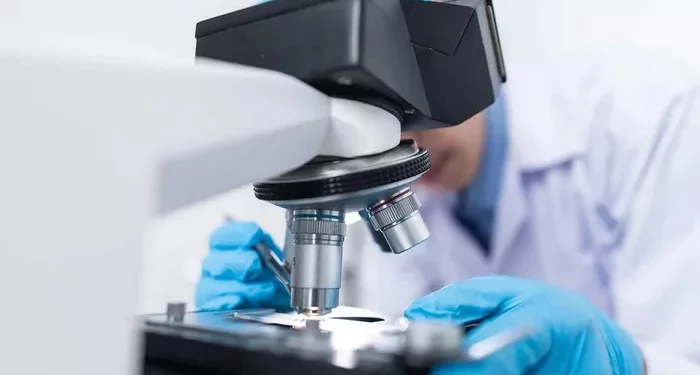Teratozoospermia is a condition where a man’s sperm has abnormal shapes. This can affect a couple’s ability to conceive naturally. This article will explore the nature of teratozoospermia, the possibilities of curing it, available treatment options, and the prospects of achieving pregnancy despite the condition.
What is Teratozoospermia?
Sperm morphology refers to the size and shape of a man’s sperm. Normally, sperm have a head, midpiece, and tail. The head contains the genetic material, the midpiece provides energy, and the tail propels the sperm. In teratozoospermia, the sperm may have abnormal heads, midpieces, or tails.
Sperm morphology is crucial because it affects the sperm‘s ability to swim properly and to penetrate the egg. Abnormal morphology can significantly reduce the chances of natural conception. Teratozoospermia is diagnosed when more than 96% of sperm are abnormally shaped, according to the World Health Organization (WHO) criteria.
Can Teratozoospermia be Cured?
The answer depends on the cause of teratozoospermia. It can arise from a variety of factors, some of which are treatable, while others are not.
Lifestyle Factors
Certain lifestyle choices can negatively impact sperm morphology. Smoking, excessive alcohol consumption, poor diet, lack of exercise, and stress are all factors that can contribute to teratozoospermia. In such cases, improving these lifestyle factors can lead to an improvement in sperm morphology.
See also: Azoospermia: Best Treatment Options to Consider
Medical Conditions
Medical conditions such as infections, hormonal imbalances, and varicoceles (enlarged veins in the scrotum) can also cause teratozoospermia. These conditions are often treatable with medications or surgery, and addressing them can improve sperm morphology.
Genetic Factors
Unfortunately, when teratozoospermia is caused by genetic factors, it is not curable. Genetic abnormalities can affect sperm production and development, leading to abnormal morphology. In these cases, treatment focuses on managing the condition and exploring assisted reproductive technologies (ART) to achieve pregnancy.
Treatment Options for Teratozoospermia
Lifestyle Changes
If a lifestyle factor is contributing to teratozoospermia, a doctor may recommend several changes:
Quitting Smoking: Smoking has been shown to damage sperm DNA and negatively affect sperm morphology. Quitting smoking can improve sperm quality.
Reducing Alcohol Intake: Excessive alcohol consumption can lead to hormonal imbalances and affect sperm production. Reducing alcohol intake can help restore normal sperm morphology.
Maintaining a Healthy Weight: Obesity can negatively impact sperm quality. Achieving and maintaining a healthy weight through diet and exercise can improve sperm morphology.
Eating a Balanced Diet: A diet rich in antioxidants, vitamins, and minerals can promote healthy sperm production. Foods such as fruits, vegetables, nuts, and whole grains are beneficial.
Managing Stress: High levels of stress can affect hormone levels and sperm production. Techniques such as meditation, yoga, and counseling can help manage stress.
Medical Treatments
In cases where lifestyle changes are not sufficient, medical treatments may be necessary:
Medications: Antibiotics can treat infections that affect sperm morphology. Hormonal therapy can address hormonal imbalances that impact sperm production.
Surgery: In some cases, surgery may be necessary. For example, repairing a varicocele can improve blood flow to the testicles and enhance sperm production.
Achieving Pregnancy with Teratozoospermia
Even with teratozoospermia, some couples are able to conceive naturally. However, if natural conception is not possible, there are assisted reproductive technologies (ART) that can help.
Intrauterine Insemination (IUI)
IUI involves placing washed and concentrated sperm directly into the uterus around the time of ovulation. This procedure can increase the chances of sperm reaching and fertilizing the egg.
In Vitro Fertilization (IVF)
IVF involves retrieving eggs from the ovaries and fertilizing them with sperm in a laboratory. The resulting embryos are then transferred to the uterus. IVF can bypass many of the obstacles posed by teratozoospermia.
Intracytoplasmic Sperm Injection (ICSI)
ICSI is a specialized form of IVF. It involves injecting a single sperm directly into an egg to achieve fertilization. ICSI is particularly useful in cases of severe teratozoospermia, where sperm morphology is significantly impaired.
See also: Non-Obstructive Azoospermia: Treatment Options
Conclusion
Teratozoospermia can be a frustrating condition, but it is important to remember that there are treatment options available. A doctor can help determine the cause of teratozoospermia and recommend the best course of treatment. With treatment, many men with teratozoospermia are able to father children.
In summary, teratozoospermia is a condition characterized by abnormal sperm morphology. The ability to cure teratozoospermia depends on its underlying cause. Lifestyle changes, medical treatments, and surgical interventions can improve sperm morphology in many cases. Even when teratozoospermia is not curable, assisted reproductive technologies such as IUI, IVF, and ICSI can help couples achieve pregnancy. It is essential for men with teratozoospermia to seek medical advice and explore the available options to improve their chances of fathering a child.
Related Topics:
What is Secondary Azoospermia: What You Need to Know



























